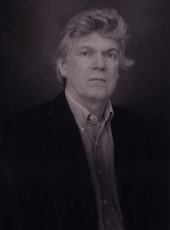
Chicago Tribune

Chicago Tribune
by James North (Jul 23, 1989)
Digitized by Jessica Suchman and Catherine Nissley
Those who are not in the know are sometimes surprised, and even irritated, to learn that a high school in Chicago is named for Roberto Clemente, who played right field for the Pittsburgh Pirates until his death in 1972. It sounds like an empty gesture, a kind of pandering to the Puerto Rican community. More knowledgeable baseball fans also can be puzzled. While they recognize Clemente as a great star, with a lifetime .317 batting average and an arm that cut down many a runner who foolishly tried for the extra base, they also remember him as a moody, remote man, not the sort whose name might inspire high schoolers.
John Krich's comprehensive survey of baseball in Latin America, "El Beisbol," reminds us that there was a different side to Roberto Clemente. Krich explains that Clemente got his difficult reputation up north because he was a proud man who "showed as little fear of opposing pitchers as he did of speaking out every time he felt that Latin players were underpaid, ignored in All-Star selections, stereotyped as hotheads, or belittled for their broken English."
After an earthquake devastated Managua, Nicaragua, Clemente bought medical supplies, rented an airplane and got on board himself to make sure the Somoza dictatorship did not steal his donation when it arrived. His plane went down in the Caribbean. It was the Christmas holiday; he could have stayed home.
Misunderstandings can happen in the other direction when American ballplayers go to Japan. Robert Whiting's terrific, fast paced account of Japanese baseball includes some hilarious misunderstandings, caused by Japanese ambivalence toward the <i>gaijin</i> (foreign) players, the cultural gap and the language barrier. After one game, an American player named Tony Solaita addresses the enemy catcher: "Listen, you &*#*$, if you have a pitcher throw at my head again, I'll $* !%$ kill you." His interpreter translates: "Mr. Solaita asks that you please not throw at his head anymore. It makes his wife and children worry."
There is no apparent pattern to why baseball caught on in some places and not in others. The Nicaraguans explain that the U.S. Marines who occupied their country in the early years of this century introduced the sport. But Haiti, similarly invaded, never adopted it. In Japan an American teacher organized the first game as far back as 1873, and the 12-team professional league, with clubs like the Yomiuri Giants, the Chunichi Dragons and the Hiroshima Carp, dates from 1935.
The styles of baseball in the two places are different and thus provide some insights into their peoples. In Japan it is a cautious, methodical game in which the managers will try to advance their runners base by base, even by ordering their power hitters to bunt in the early innings. Ties count in the standings, and the skippers will readily settle for them rather than gamble. Wa, or team harmony, is more important than individual superstars. A clear majority of the fans from all over the country root for one team, the Giants, because, as one sportswriter explains, "The Japanese don't like to stand out or be different."
Contrast that with Krich's wonderful account of the little town in the Dominican Republic called San Pedro de Marcoris, which has produced no fewer than eight major-league shortstops – the position that epitomizes flair and panache – including Julio Franco, Alfredo Griffin, Tony Fernandez and Rafael Santana. The town is in sugarcane country, so the local kids are poor. One of Krich's informants explains that they may use a stick or a sugar stalk for a bat: "They will make gloves out of newspaper and cardboard. They will use an orange, a melon, a papaya for a ball."
Both writers are sharp observers of the game. Krich discovers why many Latino ballplayers have reputations for swinging at bad balls. In the Dominican Republic, the saying goes, "You can't walk your way off an island." By contrast, the Japanese are ultra-disciplined and may train for eight hours even on game days, sprinting between the foul lines and taking thousands of practice ground balls. "Spring" training begins in mid-January.
The older Latin players, people like Vic Power and Ruben Gomez, remember well the days of official racial discrimination in the United States. In Japan the <i>gaijin</i> players also discover a kind of discrimination. They do well, often leading the leagues in power hitting and sometimes in average, but they do not get anything like the same recognition a Japanese player with similar numbers would. And if they falter, or complain about the training regimen, the tabloid press can be merciless.
The strongest part of Krich's Latin America survey comes when he joins an exhibition team that visits Nicaragua while the U.S. -backed Contra war against that country is on. Anyone who is in Nicaragua for more than 10 minutes learns that the country is baseball mad; people in remote rural areas who find out you are from Chicago will recount at length arcane details about the 1959 White Sox/ Dodgers World Series.
Krich's group donates bats and balls. He is pressed into service to give a speech: "Baseball is the game for all the Americans. May this expression of our two peoples' love for baseball serve to strengthen our two peoples' love for peace." As Krich leaves, he wonders to himself if the contra war will widen into an American invasion: Can America in good conscience ever find itself "dropping bombs on a nation of ball fields?"
This work is licensed under a Creative Commons License.
Some rights reserved.
